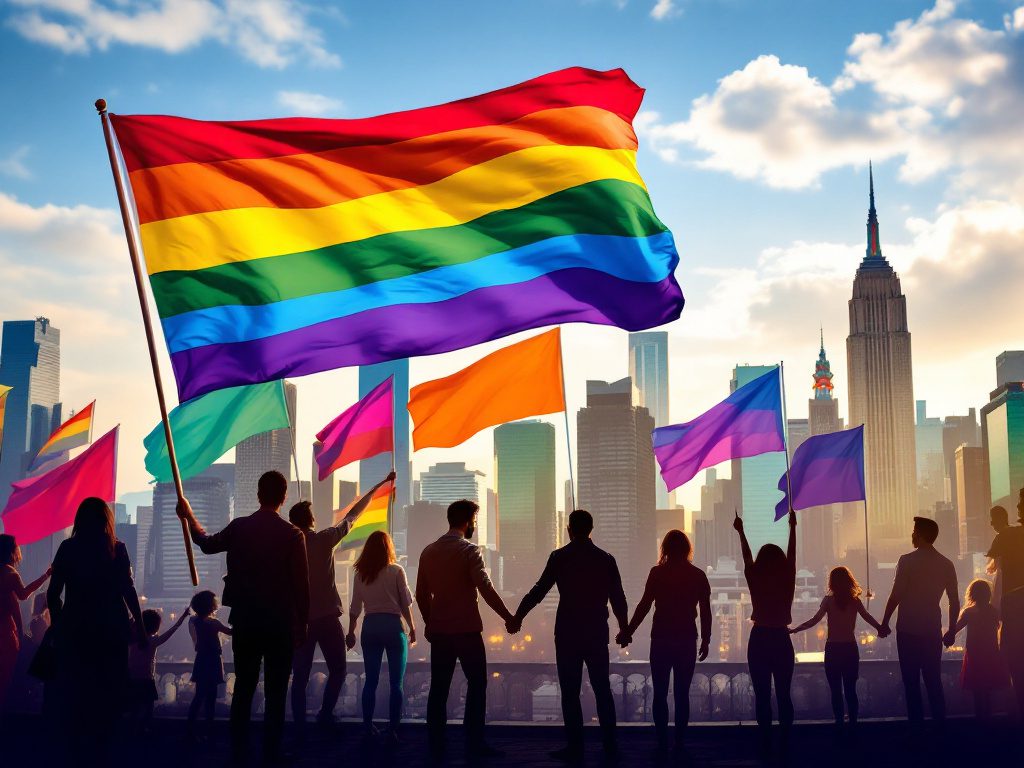The Battle for Basic Equality Intensifies
A moment that recurs, stubbornly and urgently, resurfaces in American legislative life: the reintroduction of the Equality Act by Congressional Democrats. It’s a bill both familiar and long overdue—a legislative attempt to finally ensure that LGBTQ+ Americans are protected, once and for all, under the full promise of federal civil rights law. The latest push lands amid a tumultuous period, as conservative-led states and the Trump-aligned Republican agenda actively chip away at hard-won LGBTQ+ protections, igniting a renewed sense of urgency among advocates and allies.
How often have we seen the promise of justice become a partisan football? You might recall that the Equality Act, first drafted in 1974, has been introduced and debated six times since 2015—each attempt illuminating the chasm between progress and prejudice. What makes this round different isn’t just the political climate. It’s the raw, visible backlash: more than 500 anti-LGBTQ+ bills proposed in statehouses over the past few years, coupled with federal actions, including executive orders under President Trump, that strictly define sex as male or female and erase protections for transgender people.
According to a 2023 study from the Public Religion Research Institute, national support for the Equality Act hovers at an impressive 75%, with majority approval even among Independents and many Republicans. Yet, as the polling also shows—and as recent state-level assaults reveal—public sentiment can be fragile, easily manipulated by fearmongering and misinformation.
Personal Narratives and the Real Stakes
Political discourse often misses the human element, but the press conference reintroducing the Equality Act was a defiant exception. Out lawmakers—Sen. Tammy Baldwin (D-WI), Rep. Mark Takano (D-CA), Rep. Chris Pappas (D-NH), and Rep. Sarah McBride—spoke candidly about their own journeys and the resilience of the LGBTQ+ community. Their words reminded us that this isn’t just about policy, but about survival, dignity, and the right to participate fully in American life.
Supporters point out that the Equality Act’s reach is sweeping. Beyond employment and housing, it would ban discrimination in education, public accommodations, banking, jury service, and more. As Rep. McBride, the first openly transgender member of Congress, said: “Protecting LGBTQ+ people should not be up for debate. Our lives are not bargaining chips.” The urgency is palpable, especially as anti-trans rhetoric grows sharper and more dangerous.
Who benefits from the status quo? A closer look reveals that opposition clusters around conservative religious organizations and right-wing advocacy groups. Detractors, including President Trump, routinely cite religious liberty and parental rights, framing the bill as an existential threat rather than a basic guarantee of fairness. But as Harvard Law professor Laurence Tribe observes, “Civil rights are always painted as dangerous until consensus forces our hand. We saw this debate with the Civil Rights Act in the ‘60s, and we’re seeing it again now.”
The transformative potential of federal protection is hard to exaggerate. LGBTQ+ Americans still face legal discrimination in 29 states, a fact that rarely figures into the platitudes of those claiming equality already exists. For a transgender student harassed at school, a gay couple denied housing, or a nonbinary person ejected from public spaces, federal inaction feels like complicity.
“Protecting LGBTQ+ people should not be up for debate. Our lives are not bargaining chips.” — Rep. Sarah McBride
The Politics of Backlash and Building Coalitions
Opposition to the Equality Act remains fierce in a Republican-controlled Congress, whose leaders recycle familiar refrains about faith, family, and freedom. Yet, as polling and the bill’s broad coalition signal, the tide of institutional and public support for LGBTQ+ equality has never been broader. The Human Rights Campaign, National Education Association, American Medical Association, and more than 650 organizations—including faith-based groups—have all demanded swift passage.
What explains the disconnect between public will and congressional gridlock? Look to the strategic deployment of culture-war tropes by conservative lawmakers. “We hear the same arguments that were used against interracial marriage and gender equality,” notes historian Lillian Faderman. “Whenever the arc bends toward justice, backlash follows.” Under Trump, federal agencies rolled back non-discrimination guidance in health care, education, and the military, sending a signal to states that discrimination would carry no federal consequences. These policy shifts aren’t abstract; they embolden those eager to enforce rigid notions of gender and sexuality.
Yet, even as far-right extremists dig in, history suggests that persistence and coalition-building win in the end. In 2019, the House passed a version of the Equality Act—including with bipartisan support—but the bill has repeatedly stalled in the Senate. Advocates remind us that progress, as with women’s suffrage and the civil rights movement, is rarely linear. Setbacks can galvanize new activism and draw sharper divisions between those invested in equality and those clinging to exclusion.
Today’s fight is bigger than bill numbers or procedural hurdles; it is about who belongs in America. Will our laws reflect the diversity and dignity of our people—or will we surrender to reactionary fears? The answer, as always, depends on whether we demand accountability, organize across divides, and refuse to treat fundamental rights as negotiable.

